I am having a function that accepts one string parameter. This parameter can have only one of a few defined possible values. What is the best way to document the same? Should shapeType be defined as enum or TypeDef or something else?
Shape.prototype.create = function (shapeType) {
// shapeType can be "rect", "circle" or "ellipse"...
this.type = shapeType;
};
Shape.prototype.getType = function (shapeType) {
// shapeType can be "rect", "circle" or "ellipse"...
return this.type;
};
The second part of the problem is that the possible values of shapeType is not known in the file that defines shapeType as whatever you suggest. There are multiple files contributed by several developers who might add to the possible values of shapeType.
PS: Am using jsdoc3

